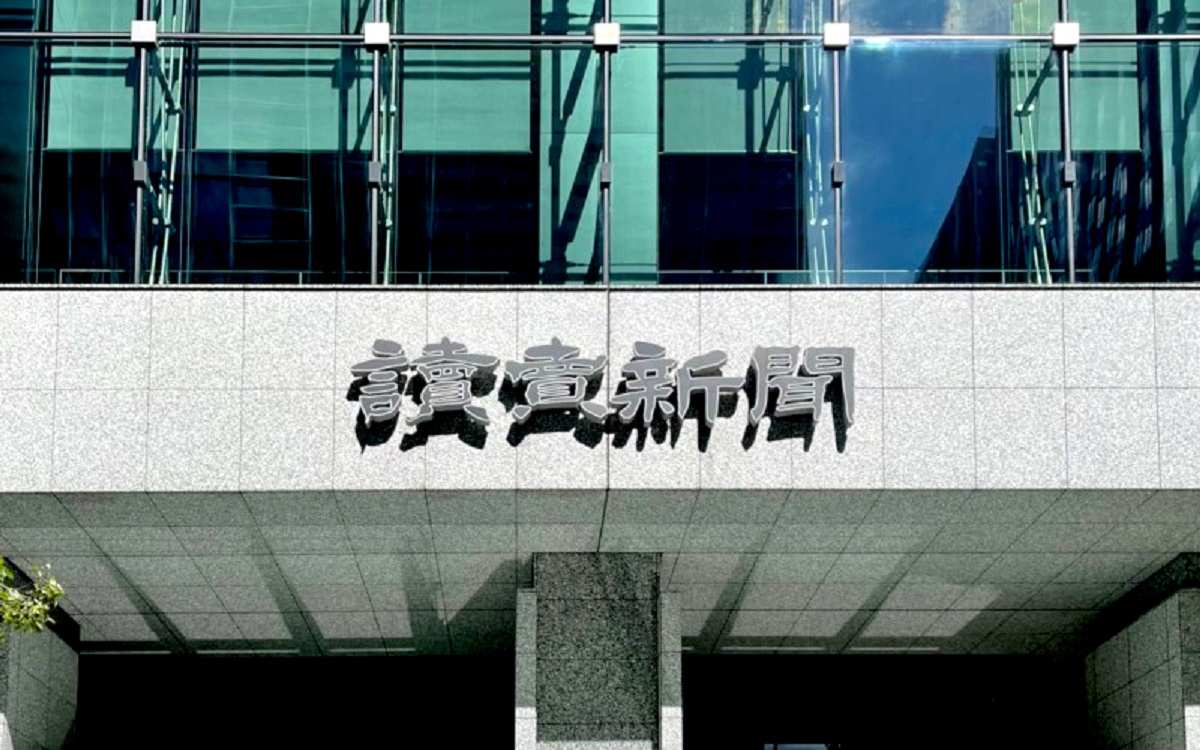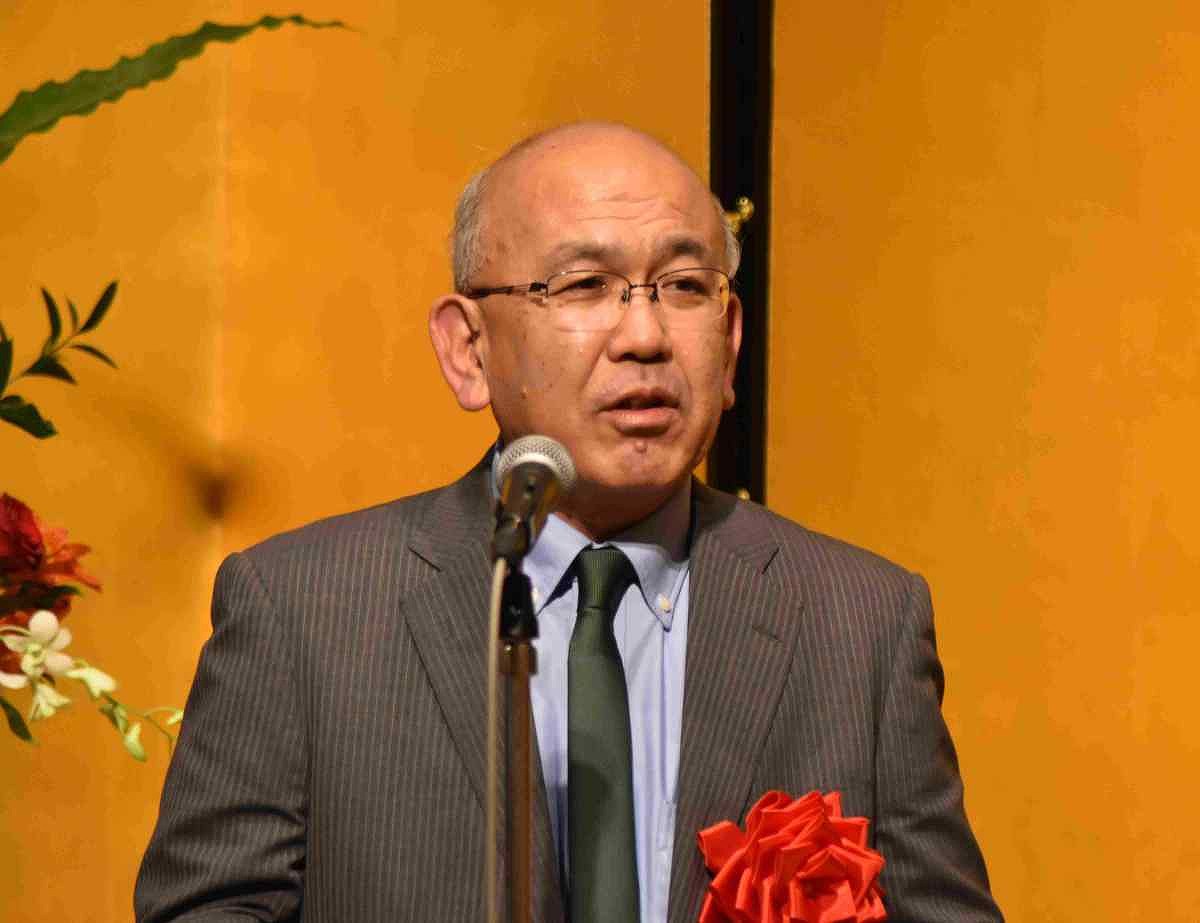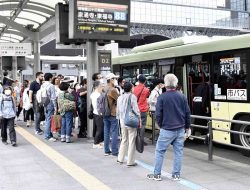Akihiro Seita Calls Gaza ‘Land of Despair’; Japanese Doctor Says Winter Illnesses a Threat to Refugees
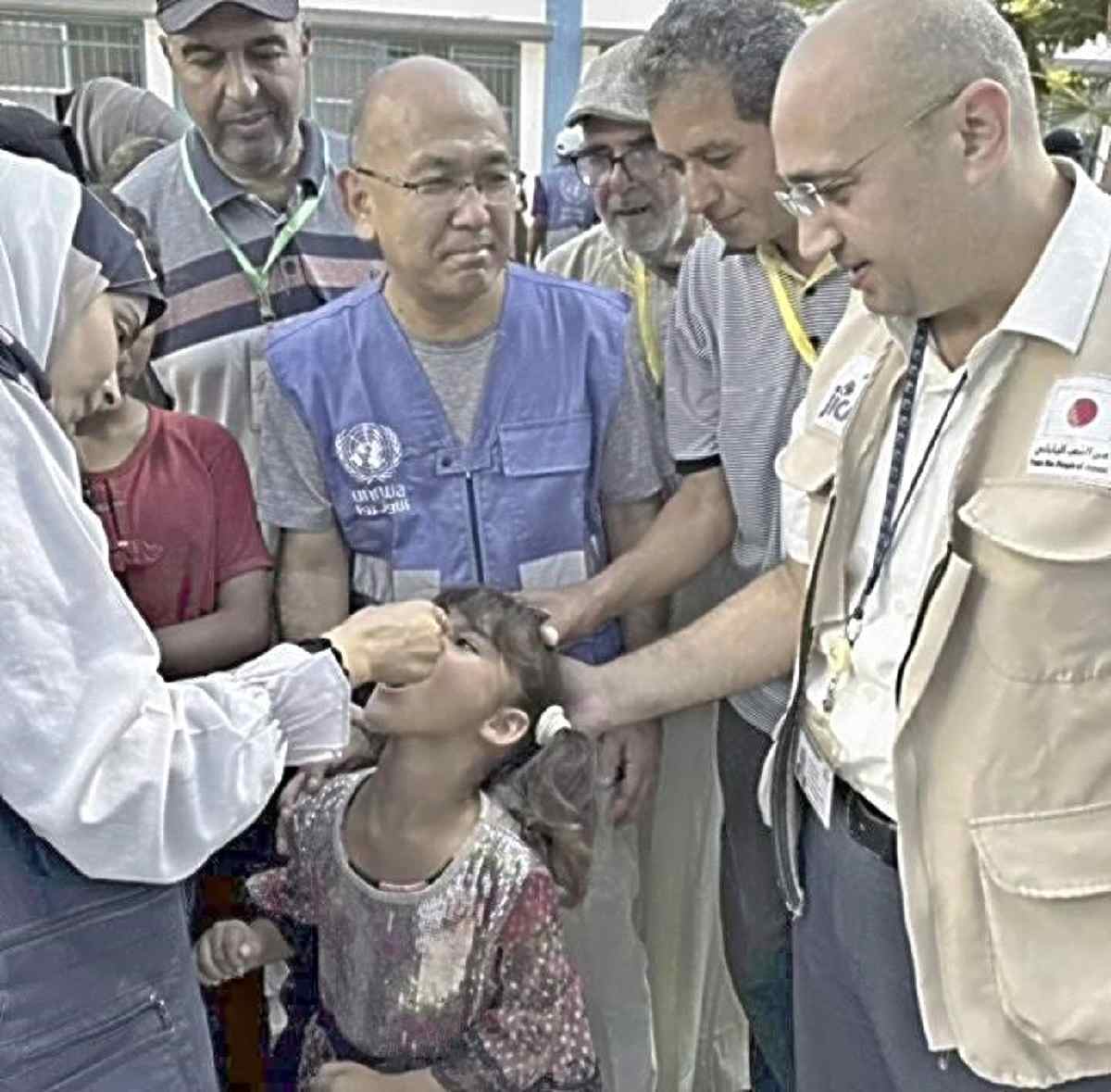
Akihiro Seita, center, oversees first-round vaccinations against polio to Palestinian children in Gaza during a humanitarian pause in September.
16:52 JST, November 18, 2024
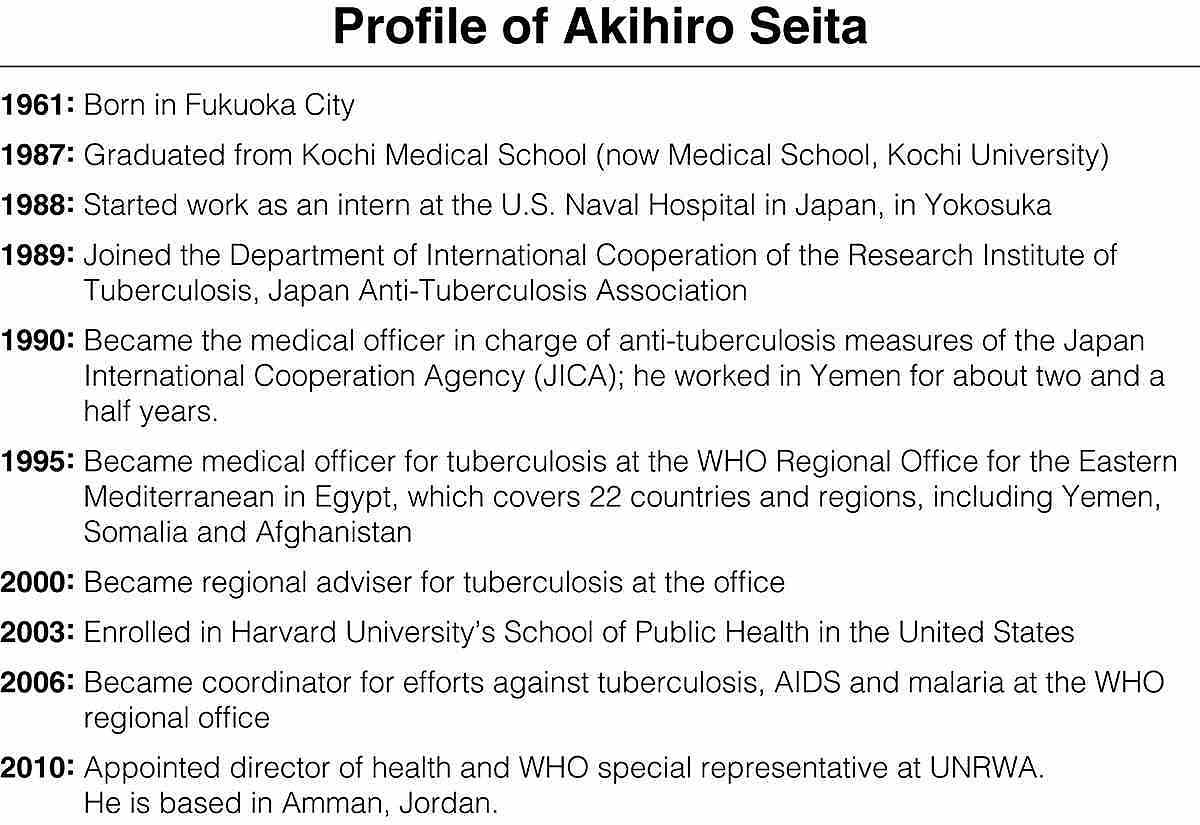
Dr. Akihiro Seita has been chosen to receive the 31st Yomiuri International Cooperation Prize for his efforts to provide health care to Palestine refugees through the World Health Organization and the U.N. Relief and Works Agency for Palestine Refugees in the Near East (UNRWA).
As the director of health and WHO special representative at UNRWA, Seita, now 63, works on providing emergency humanitarian aid for the people of the Palestinian territory of Gaza, where the death toll has exceeded 43,000.
***
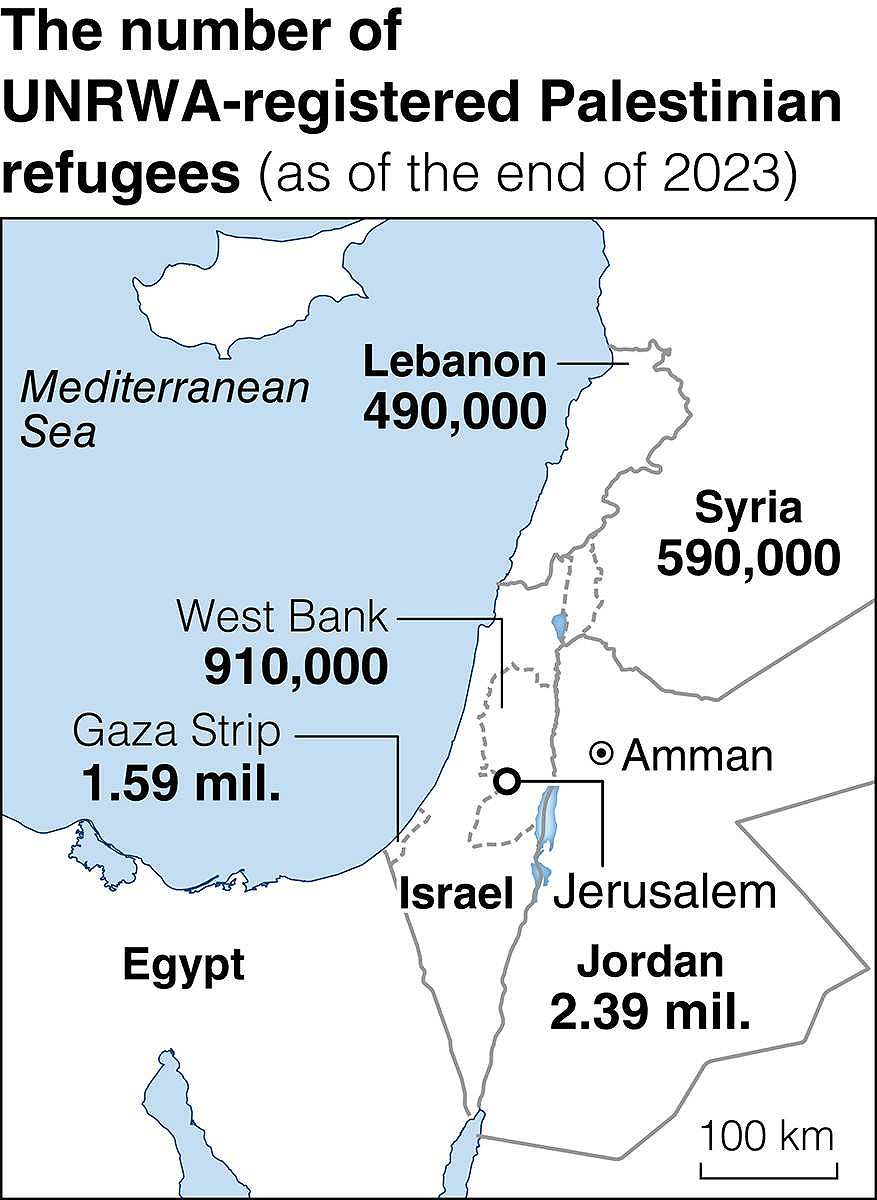
Gaza Strip is known as the “world’s largest open-air prison” as 2.2 million people are prevented from freely entering and leaving outside of the Palestinian territory.
Many of them have lost their family members or friends, while trying to escape the damage caused by the war. Many are also suffering from injuries or illnesses and enduring hunger and cold.
The struggle continues for Seita, who is responsible for the health care of refugees in Gaza.
Seita has been to Gaza three times since fighting started there in autumn last year and has witnessed what he called the “harsh reality of the battlefield” many times.
He led a polio vaccination campaign in Gaza during a brief pause in September after polio virus infections were confirmed in the territory, which had been polio-free for the last 25 years. Seita said the spread of the disease was a “man-made disaster” caused by war.
“It could have been prevented if the water and sewage systems had not been destroyed,” he said.
The majority of the about 1,000 medical staff of the UNRWA in Gaza are refugees. Seita always worries about their safety as they are both physically and mentally exhausted by the “war with no end in sight.”
A total of 237 workers with the UNRWA, which is also responsible for running schools, have died as of Nov. 3.
Asako Nitta, 32, a public relations official at the UNRWA’s Jerusalem headquarters, said one of her colleagues in Gaza said there is no safe place in the Palestinian territory.
Collapse of 70-year efforts
Seita, who oversees 3,300 UNRWA medical staff, has been taking on the challenge of protecting the lives and health of patients over the past 15 years through repeated conflicts in Gaza. Believing that “poverty lies behind health problems,” he has tackled various issues, including diabetes and other lifestyle diseases, rehabilitation of people injured during conflicts and the mental health of young people who feel discouraged about their future due to a lack of jobs caused by the years-long blockade of Gaza.
Seita integrated the points of contact for outpatients with lifestyle-related diseases and those in need of maternal and child health and general health services. He also set up a family health team, comprised of family doctors, nurses and midwives, and he introduced electronic medical records to make it easier to continue treatment at evacuation facilities.
He also expanded a handbook system based on Japan’s Maternal and Child Health Handbook, which is useful even at evacuation facilities in Europe and elsewhere. Seita refers to the handbook as the “passport of life” for infants and young children.
But, Seita lamented, although a minimum standard of living was maintained in past conflicts, it has become difficult to continue the medical and health systems that have been built over the past more than 70 years.
Most vulnerable people
When Seita was a medical school student, he was distressed by the “indifference of the world” toward Indo-Chinese refugees. He became aware of international health through his activities with a medical nongovernmental organization.
He specifically chose a U.S. military hospital so he could be trained in clinical studies in areas such as surgery, gynecology and obstetrics, among others, in English in a comprehensive manner.
“Society’s problems are concentrated in the lives of those in the most vulnerable positions. That is where what we need to do occurs,” Seita said.
This is a belief that the tuberculosis specialist has held since his time as a medical officer at the Japan International Cooperation Agency and the World Health Organization.
The UNRWA has been forced to close half of its 25 clinics in Lebanon, where refugees have been once again exposed to the fires of war.
Japan has been focusing its efforts on supporting the resolution of the Palestinian issue, which is at the heart of the Middle East peace process.
“The UNRWA has supported refugees who were forced to flee their homes to help them live humanely. In recognition of this, Japan has assisted the organization,” said Hiroyuki Suzuki, a project associate professor at the University of Tokyo. “There is a shared recognition among Palestinians that Japan cares about them,” said Suzuki, who specializes in regional research on the Middle East.
Japan has placed importance on the health and medical care of people in developing countries and regions. The efforts of Japanese U.N. officials — who have been working closely with the people in what U.N. Secretary General Antonio Guterres called the tremendous suffering — are expected to continue.
UNRWA provides ‘last lifeline’ for refugees
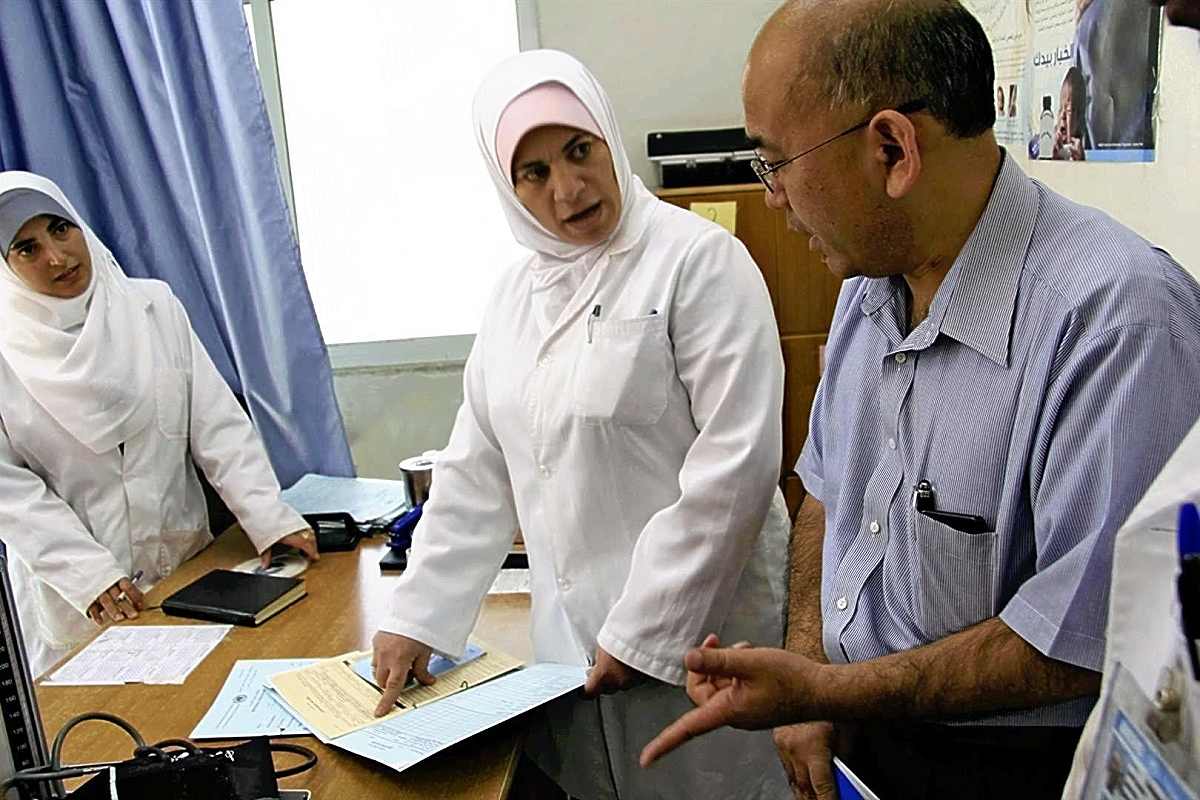
Akihiro Seita, right, discusses patient care with UNRWA health officials in Amman in June 2013.
The following is excerpted from The Yomiuri Shimbun’s recent online interview with Akihiro Seita in Amman about helping refugees and other issues.
***
The Yomiuri Shimbun: What are medical conditions like in Gaza?
Akihiro Seita: Many of the 22 clinics that the UNRWA operates have been destroyed or closed, and only three of them manage to be functional. The destruction of water and sewerage systems has led to a deterioration in hygiene conditions, and infectious diseases are spreading. There have been delays in the delivery of supplies due to security restrictions imposed by Israel, resulting in severe shortages of medical supplies, including insulin.
Although over 10,000 seriously ill patients need treatment outside Gaza, we were only able to evacuate less than 100 of them in September. There is concern that the number of respiratory and other illnesses will increase in the winter. Israel permitted mass polio vaccinations to be conducted in Gaza under its strict control, which limited the time and area where we could operate. The second round of the polio vaccine in northern Gaza was significantly delayed.
Yomiuri: How was the situation of the local staff?
Seita: Unlike us foreign workers, the refugee workers are trapped in a “land of despair” because they cannot leave Gaza freely. When we have online meetings, the workers facing the depletion of medicine are so angry [over the invasion] that there are always some staff members who cannot control their emotions and burst into tears every time. But more than half of them refuse to take a long break for their mental and physical health even when we suggest that they do so.
They say that it is hard to be in tents and ruined houses from morning to night and that the only way they can keep their dignity as human beings is through their work, when they are thanked by the patients. All I can do is listen to their cries of agony. Medical care is powerless in the face of war.
Yomiuri: Israel intends to ban the UNRWA from operating in Israel. Coordination with Israel is necessary to continue the operation.
Seita: It is feared that the inflow of aid, desperately needed for the people in Gaza, such as food, water and medicine, could stop.
There is also a serious concern about the prolonging the time people spend living in a evacuation.
No other organization can take over our operation for providing such large-scale aid. The UNRWA is really their last lifeline. Lebanon and Syria [where the UNRWA provides services to refugees] are overwhelmed with dealing with their own countries’ displaced people, and the Palestinian refugees have been abandoned. For humanitarian aid that a country cannot provide, the power of the United Nations becomes necessary.
Yet, humanitarian and medical aid has its limits. A ceasefire is the only way to save lives. The international mechanisms to stop the fighting are not working, and this is preventing a solution to the problem.
How can we stop the change of the status quo by force? We have to remember that this can happen to Japan, too. There is no choice but for each country to speak up more.
It is lawmakers, citizens’ voices and public opinion that could force a government to act.
People around the world are sympathetic to the plight of Gaza, but no one sheds tears over just the number of dead alone. I want people to think about the lives and stories of each and every citizen.
People whose lives have been destroyed by war lose their dignity. We must not allow any more children to lose their dignity.
Committee chair: Value of his work should be widely known
The following is a statement by Kenichiro Sasae, chair of the Yomiuri International Cooperation Prize Selection Committee.
Dr. Seita worked for many years in the fight against tuberculosis, AIDS and other infectious diseases at the WHO and also has enthusiastically contributed to aiding refugees in Gaza as the director of health at UNRWA.
Difficulties in providing relief for refugees, in many cases, stem from humanitarian spaces becoming narrower due to the complicated relations between nations and ethnic groups becoming increasingly confrontational.
With the humanitarian tragedy over Gaza capturing attention worldwide, there is a Japanese doctor who is leading 569 other doctors engaged in relief activities and stressing the importance of aid from the international community. The activities have value that should be known more widely. We hope this Yomiuri International Cooperation Prize can be a contribution toward doing just that.
Ogata, Akashi among past prize winners
The Yomiuri International Cooperation Prize was established in 1994 to commemorate the 120th anniversary of The Yomiuri Shimbun.
Sadako Ogata, then U.N. high commissioner for refugees, was awarded the inaugural prize. The annual prize has been awarded to Japanese individuals or groups for activities in which they have demonstrated the importance of contributions and cooperation in the international community.
This is the first year that the prize is awarded to an international public servant since Yasushi Akashi, then U.N. under-secretary general for humanitarian affairs, received the prize in its third year.
Seita was selected as this year’s winner for his significant and long-time contributions overseas as a doctor.
***
This year’s selection committee members are:
Chair Kenichiro Sasae, president of the Japan Institute of International Affairs
Ken Sato, adviser to the Nakasone Yasuhiro Peace Institute
Atsuko Muraki, president of the Japan National Council of Social Welfare
Kazuyoshi Umemoto, adviser to the Japan Foundation
Shoichi Oikawa, representative director and chairman of the board, senior deputy editor-in-chief of The Yomiuri Shimbun Holdings; director and chairman of the editorial board at The Yomiuri Shimbun
Top Articles in Society
-

Producer Behind Pop Group XG Arrested for Cocaine Possession
-

Man Infected with Measles Reportedly Dined at Restaurant in Tokyo Station
-

Man Infected with Measles May Have Come in Contact with Many People in Tokyo, Went to Store, Restaurant Around When Symptoms Emerged
-

Woman with Measles Visited Hospital in Tokyo Multiple Times Before Being Diagnosed with Disease
-

Australian Woman Dies After Mishap on Ski Lift in Nagano Prefecture
JN ACCESS RANKING
-

Producer Behind Pop Group XG Arrested for Cocaine Possession
-

Japan PM Takaichi’s Cabinet Resigns en Masse
-

Man Infected with Measles Reportedly Dined at Restaurant in Tokyo Station
-

Israeli Ambassador to Japan Speaks about Japan’s Role in the Reconstruction of Gaza
-

Videos Plagiarized, Reposted with False Subtitles Claiming ‘Ryukyu Belongs to China’; Anti-China False Information Also Posted in Japan
